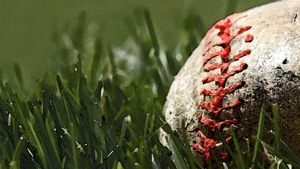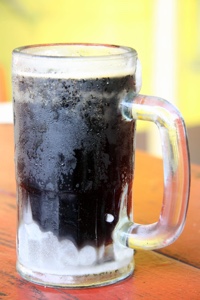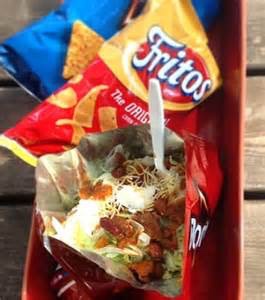When I was a kid, summer started when school ended, usually the last week in May, and you were faced with three months of time to fill. It seemed endless.
For a week or so, it meant sleeping later than usual, that was 8:30, or 9:00 at the latest. After the first couple of weeks the earlier rising time, hammered into place by nine months of school clicked back in place.
One thing we did not do was watch television. Except for the early morning childrenís shows, generally aimed at little kids, there was nothing to watch. Mornings and afternoons were the domain of soap operas and those were too dull to be of any interest.
There were Saturday morning kidsí programming, but that was a weekend phenomena, so you expected Winky Dink or Fury or Captain Midnight with his trusty sidekick Icabod Mudd, with two ďddĒs, only once a week. The networks were not so enamored of youthful buying power in those days because the youths did not have much. A couple of dollars a week in allowance only went so far, even with movies for $.35 and popcorn and Cokes a nickel or a dime.
We were more an outdoor generation. We played in the neighborhood until the last sprinkles of light left the sky each night, the gray shadows turned black and the evening was filled with mothers calling, ďItís time to come in now.Ē
We played army and cowboy and group games in somebodyís front yard. Games like kick the can, hide and seek, Red Rover, May I?, and freeze. We played catch until the white baseball, make that dirty white baseball, was almost invisible in the dusk and front teeth were at risk from disappearing pop flies.

The true highlight of those summer evening games played deep into the dusk was the arrival, two or three times a week, of the mosquito fogger. It was a city-operated pick up truck with a machine that spewed out thick, dense clouds of blue gray DDT to harass the bug population. The poison haze would linger over the neighborhood for several minutes, before slowly dissipating, settling into the ditches that ran along the street and provided nurseries for flying pests.
For a few minutes, the scene was more like London on a foggy night than Texas on a summer evening. It was exotic, it was exciting, it was fun. The kids would run through the mist, lost in the fog, following the truck like the children of Hamlin Town followed the piper. Such action today, both the fogging and chasing the truck, would be very politically incorrect, but we knew no better, so we played in the fog and then returned to our games free from the pesky mosquitoes, which along with chiggers could make miserable a kidís summer existence.
The chigger capital of the world was in Leonard. The thick black soil seemed weeds and grasses especially appealing to the red bug. When young legs became covered in red spots and the itching became all but unbearable, it was time for home remedies. My grandmother favored a couple of inches of cold water in the bathtub laced with generous dollop of Lysol.
It didnít really work of course; neither did painting the spots with fingernail polish or dousing them with tobacco juice. The chiggers had moved on to other climes, leaving behind only the itch to commemorate their visit.
Clubs were popular. In our neighborhood, there was a law that every kid had to start at least one club during the summer. The clubs didnít last very long. The first meeting was for picking a name, setting a meeting time and place and electing officers. We were very democratic. That done, it was time for refreshments. The cookies and Kool-Aid may have been the real reason for the club in the first place.
Meeting number two was given over to a reading of the minutes by the girl who was secretary, a post always given to a female. All boy clubs didnít keep minutes and no boy would take the job. After the minutes, it was time for refreshments again.
Third meetings were rare, and the club usually dissolved about that time. But that was all right. Another club would start up the next week so one never faced a drought of cookies and Kool-Aid.

Swimming was part of summer, but in a town with no public pool it was not a common activity. Most people went to the Bonham State Park, but until you had a driverís license and car, that required the intervention of an adult, and most mommas and daddies were too busy earning a living and taking care of business at home to run a bus service. Consequently, swimming was more a treat than a regular activity.
By the age of ten or eleven, baseball had become the all-consuming passion of the summer for my brothers and me. We carefully collected baseball cards, listened to the Mutual Networkís game of the day every afternoon, and poured over the boxes scores in the newspaper for the latest on our heroes. (Mine were the Brooklyn Dodgers with Duke Snider, Gil Hodges, Pee Wee Reese, Roy Campanella, and Jackie Robinson. When we werenít collecting or listening or playing baseball board games, we were playing outside.
This was true sandlot baseball, pick-up games with the neighborhood kids and an occasional outsider. At the end of the block was an empty lot owned by Mr. Brent, who let us play there. We dubbed it Brentís Field, built a backstop out of two by fours and chicken wire and laid out a diamond. There were never anywhere near nine players per side, but that didnít matter.
The biggest problem lay in right field. It was the short field, and a fly ball in that direction often landed across the street in the garden of a woman who did not take kindly to her produce being disturbed. The challenge was to slide under the fence and retrieve the ball without being noticed.
Home runs to left often got lost in tangle of high grass that surrounded the a small stream across the road. This necessitated taking up a collection of all available change and suspending play while some one rode a bike downtown and bought another baseball. The minimum required for something better than a cottonseed ball, which went lumpy the first time you hit it, was ninety-eight cents. 

It was also the excitement when school started and summer was over and a new year of adventures could be seen reaching out.